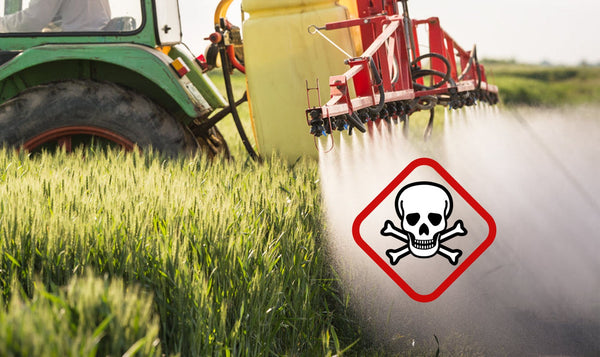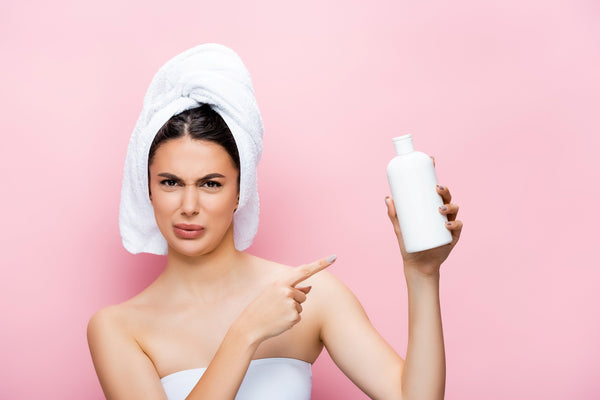The 4 Types of Olive Oil & Why It Matters for Skincare

Skincare Secrets: Episode 1
Warning: One type contains residual hexane!

The Skin Benefits of Olive Oil
Olive oil is one of the absolute BEST oils for your skin because it nourishes, moisturizes, and protects. Olive oil is packed with vitamins A, D, E, & K, and essential fatty acids which nourish and moisturize your skin. Olive oil also contains antioxidants which slow skin aging by protecting your skin from free-radicals. (Free radicals trigger oxidative stress and accelerate skin aging.) So you definitely want to use skincare products made with olive oil, but it’s important to realize that not all olive oils are the same. There are four types of olive oil and the previously mentioned beneficial properties are only found in the highest grade olive oil (organic extra virgin). The lower (and cheaper) grades of olive oil do not confer these benefits. In fact, the lowest grade olive oil can contain residual hexane, a toxic chemical.

What’s Hexane?
Hexane is a highly flammable liquid made from crude oil. It’s a chemical solvent used to extract oil from seeds (olive seeds, sunflower seeds, canola seeds, palm kernel seeds, etc.). Hexane is toxic and can be fatal if ingested. It’s so toxic that according the US Center for Disease Control (CDC), simply inhaling the fumes from hexane “causes nerve damage and paralysis of the arms and legs.” [1] So you definitely don’t want hexane in your olive oil, but here’s the big secret that companies don’t want you to know: the vast majority of skincare products that contain ‘olive oil’ are made with the lowest grade of olive oil (pomace olive oil), the type that contains residual hexane. While the European Union monitors and regulates the maximum amount of residual hexane allowed in oils, shockingly, the US FDA does not, leaving American consumers exposed to unregulated levels of this toxic chemical in skincare products make from those oils.[2]
Why Is Hexane Used?
Consider this: You can get oil from the fleshy part of an olive just by squeezing it with your hand. But an olive seed is very hard and it’s difficult to get oil from an olive seed, or from any seed. This is why oils made from seeds are usually chemically processed using hexane. For example, palm oil (sodium palmate) comes from palm kernel seeds, canola oil comes from canola seeds and sunflower oil comes from sunflower seeds which are all usually chemically processed using hexane.[3] The best way to avoid hexane is to use only products made from certified organic oils. Certified organic oils cannot be processed with hexane or any other type of chemical solvent.
The Four Types of Olive Oil, and Which One Has Hexane
Ok, so here’s the four types of olive oil, from best to worst:
- 🏆ORGANIC EXTRA VIRGIN OLIVE OIL – Made from the 1st press of organic olives, this is the only grade of olive oil that’s organic. This grade of oil contains skin-beneficial vitamins, fatty acids, or antioxidants. This is the highest quality olive oil and this is what we use at S.M.O.C. Skincare.
- 🫒EXTRA VIRGIN OLIVE OIL – made from the 1st press of conventionally-grown olives. ‘Conventionally grown’ means the olives can be sprayed with pesticides and herbicides, resulting in residual pesticides/herbicides in the oil and in products made from this oil.
- 🫒LIGHT OLIVE OIL – made from the 2nd press of conventionally-grown olives. The second press of the olives doesn’t contain nearly as many skin-beneficial vitamins, fatty acids, or antioxidants as the first press.
- 🧪POMACE OLIVE OIL (usually called simply “olive oil” on skincare product labels) – This is Not food-grade oil. Made from the 3rd press of conventionally-grown olives, seeds & stems, followed by a chemical extraction with hexane.⚠️ Some residual hexane remains in the oil. ‘Conventionally grown’ means the olives can be sprayed with pesticides and herbicides, resulting in residual pesticides/herbicides in the oil and in products made from this oil. All beneficial properties of the olive oil are lost. Yet, 95% of skincare products that contain “olive oil” are made with pomace olive oil. Why? Because it’s very cheap.
Certified Organic Is The Way To Go
So now you’re in the small group of consumers who know what's up. Certified organic means no pesticides/herbicides and no hexane. Olive oil is incredibly beneficial to your skin but you want the good olive oil, not the bad stuff. Seek out skincare products made from certified organic ingredients like organic extra virgin olive oil.
Your skin is your body’s largest organ and everything you put on it gets absorbed into your body. You only get one skin, and it’s gotta last your whole life. Please share this knowledge with people you care about. Thank you for taking loving care of your skin, your health, your loved ones, and our planet.

-----------------------------------------------------------------------------------------------------------------
Sources:
[1] ToxFAQs™ for n-Hexane, US Center for Disease Control (CDC), Agency for Toxic Substances and Disease Registry (ATSDR) https://wwwn.cdc.gov/TSP/ToxFAQs/
ToxFAQsDetails.aspx?faqid=392&toxid=68, accessed Feb 21, 2024
[2] Understanding Hexane Extraction of Vegetable Oils, Anderson International Corp., July 31, 2023, https://www.andersonintl.com/
understanding-hexane-extraction-of-vegetable-oils/, accessed Feb 21, 2024
[3] Say NO to hexanes (They Could Be In Your Cooking Oils) - Ask Dr. Ernst, https://askdrernst.com/healthblog/say-no-to-hexanes-they-could-be-in-your-cooking-oils/, accessed Feb 21, 2024


